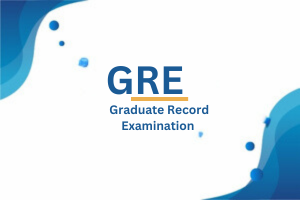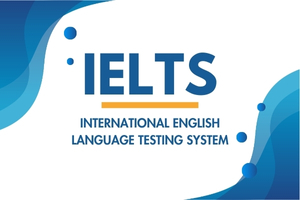About us

What is the GRE Exam?
GRE (Graduate Record Examination) is a standardized test that the students sitting for applying abroad want to take admission in different disciplines of studies. The GRE aims to measure skills that are critical for success in graduate and business school, including verbal reasoning, quantitative reasoning, analytical writing and critical thinking. This guide will walk you through the GRE exam with everything you need to know: structure, eligibility criteria, score and get prepared.
Why Take the GRE Exam?
The GRE exam is accepted by thousands of graduate and business schools across the world, spanning USA major institutions, Canadian and European universities among others. Here's why taking the GRE exam can benefit you:
- Gateway to Top Universities: The GRE score is often a critical component in the admissions process for Master's, MBA, and PhD programs.
- Versatility: Unlike other standardized tests, the GRE is not limited to a specific field; it is used across a variety of disciplines.
- Flexibility: It allows you to report only the scores that make you look good, not having to tell schools your GRE scores if you are not proud of them.
- Scholarship Opportunities: If you score higher GRE scores then it can allow you to apply for a scholarship as well as financial assistance.
Pro Tip: A good GRE score can significantly enhance your chances of securing admission to your dream university, so it's worth putting in the time and effort!
GRE Exam Pattern: New Format (Updated 2024)
The GRE exam underwent several updates to its format to enhance the test-taking experience. Here’s a quick look at the current GRE pattern:
-
Analytical Writing
- Number of Questions: 1 section (2 tasks)
- Time Allotted: 60 minutes
-
Verbal Reasoning
- Number of Questions: 2 sections (20 questions each)
- Time Allotted: 30 minutes per section
-
Quantitative Reasoning
- Number of Questions: 2 sections (20 questions each)
- Time Allotted: 35 minutes per section
-
Unscored Section
- Number of Questions: Varies
- Time Allotted: Included, but not identified in the test.
Question: Are you more confident in your verbal or quantitative skills? Understanding your strengths can help you allocate your study time more effectively.
Types of GRE Exams
There are two main types of GRE tests that you should be aware of:
-
GRE General Test
Assesses verbal reasoning, quantitative reasoning, and analytical writing skills. Suitable for most graduate programs, including MBA and Law. -
GRE Subject Tests
Focuses on specialized subjects such as Biology, Chemistry, Math, and Physics. Typically required for specialized programs in science and technical fields.
Pro Tip: Most students opt for the GRE General Test, but if you're applying to a specialized program, check if you need to take the GRE Subject Test as well.
Eligibility Criteria for the GRE Exam
One of the most appealing aspects of the GRE is its broad eligibility criteria:
- Age Limit: There is no age limit for GRE.
- Educational Qualification: There is no fixed minimum educational requirement, but most candidates apply to graduate schools with bachelor's degrees.
- Number of Attempts: You can take the GRE up to five times in a 12-month period, with a minimum gap of 21 days between attempts.
GRE Syllabus: What to Expect?
The GRE skills are based on mathematics, critical thinking and language expertise,so let's examine the next section piece by piece.
GRE Analytical Writing Syllabus
- Task Types: Issue and Argument essays
- Skills Assessed: Ability to articulate complex thoughts honestly, aid thoughts with relevant motives, and maintain a centered and coherent discussion.
GRE Verbal Reasoning Syllabus
- Types Of Questions : Reading Comprehension, Text Completion, and Sentence Equivalence.
- Key Learning : Understanding and analyzing written material, relationships between words and concepts.
GRE Quantitative Reasoning Syllabus
- Topics Covered: Arithmetic, Algebra, Geometry, Data Analysis
- Skills Assessed: Problem-solving ability, mathematical concepts understanding, and data interpretation.
Pro Tip: Regular practice in solving quantitative problems and enhancing vocabulary will give you a strong edge in the GRE.
How Are GRE Scores Calculated?
GRE scores are calculated separately for each section:
- Verbal Reasoning: Scored on a scale of 130-170, in 1-point increments.
- Quantitative Reasoning: Scored on a scale of 130-170, in 1-point increments.
- Analytical Writing: Scored on a scale of 0-6, in half-point increments.
Question: Do you already know which section holds greater weight for your target program? Check the college’s necessities to recognize your guidance.
How to Access GRE Scores?
You can access your GRE scores approximately 10-15 days after your test date through your ETS account:
- Log in to your ETS account.
- Select "View Your Scores" and follow the instructions.
- Scores are available for up to five years.
When Will GRE Official Score Reports Be Available?
- Unofficial Scores: Verbal and Quantitative scores are available immediately after completing the test.
- Official Scores: Typically available within 10-15 days on your ETS account.
What is a Good GRE Score? What is the Validity of GRE Scores?
- Good GRE Score: A score above 310 is considered competitive for most programs, while top-tier institutions may require scores above 320-330.
- Validity: GRE scores are valid for five years, giving you ample time to apply to your desired programs.
GRE Preparation Tips
- Create a Study Plan: Focus on your weaker sections first, then move on to polishing your stronger areas.
- Practice Tests: Regular mock tests help you get comfortable with the exam pattern and identify areas that need improvement.
- Vocabulary Building: A strong vocabulary is crucial for the Verbal Reasoning section, so make it a daily habit.
- Quantitative Skills: Sharpen your math basics and work on speed for problem-solving.
Pro Tip: Use official GRE prep materials and join study groups to share resources and tips.
GRE Scholarships
Scoring high on the GRE not only boosts your chances of admission but also opens up scholarship opportunities. Here are some common scholarships available for GRE test-takers:
- Fulbright Foreign Student Program: High GRE scores and academic excellence.
- Joint Japan/World Bank Graduate Scholarship Program: High scores and financial need.
- Inlaks Scholarships: High academic achievements and GRE scores.
Conclusion: Is the GRE Worth It?
GRE is still one of the most recognized and widely accepted tests for graduate and business schools. A good GRE score can open up opportunities, scholarships and perhaps a chance to study at some of the leading universities in the world.
Final Pro Tip: Prepare early, Practice regular, and Work on Time Management
Features
Accepted worldwide
100 countries.
Complete duration
3 Hours and 45 Minutes
Test centers worldwide
1,000 ETS-authorized test centers in 160+ countries
Fees
INR 22,550
Quick Details
Analytical Writing
Verbal Reasoning
Quantitative Reasoning
Cost of GRE
| Exam Cost | INR 22,550 |

